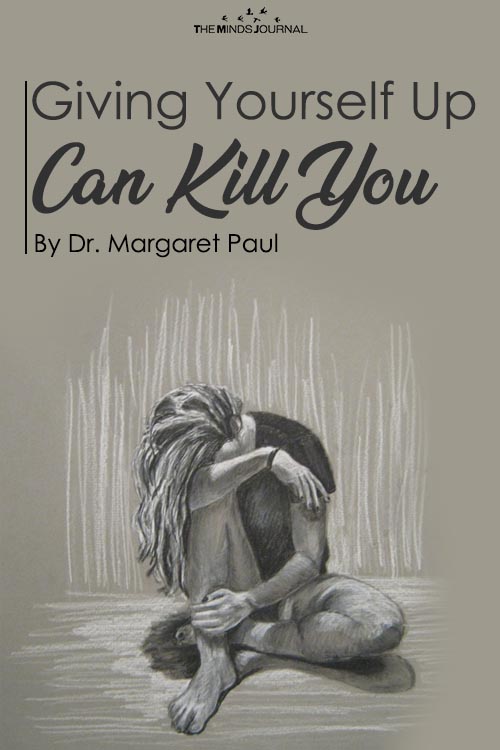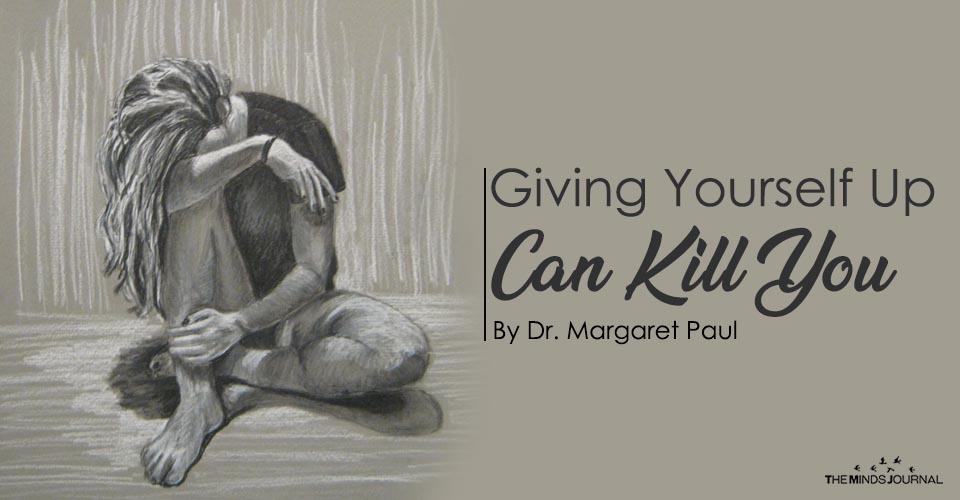Years ago, when on a book tour for our book, “Do I Have To Give Up Me To Be Loved By You?”, my ex-husband and I had dinner with a couple on the East Coast with whom he had become friends. I connected with Allison (not her real name) immediately. Warm and open, I could see that she was a deeply caring woman. On the other hand, her husband Ken, while overtly charming, had a huge black hole inside that felt like a vacuum cleaner sucking the energy out of everyone. His need for attention was overwhelming to me.
A few months after that dinner, I heard that she had committed suicide. I immediately understood why.
It was evident to me in that dinner that Allison had completely given herself up to Ken, giving him all her attention and constantly trying to fill his empty hole. She had lost herself by completely abandoning herself in her attempts to take responsibility for his feelings. The result was that, instead of Ken healing, he had become more and more dependent on her over the years, and Allison felt more and more trapped and drained. I don’t know why she felt she could not leave rather than kill herself, but apparently, she did not see leaving as an option.
I understood because I was in the same situation – with my husband, my parents, and my children. I was the caretaker for everyone, and I was slowly dying from having completely abandoned myself and given myself up to others.
I chose, after 30 years of marriage and many attempts to break the taker-caretaker system, to leave rather than die. I wish Allison had made the same choice.
Today I work with people all over the world, both men and women, who feel so trapped by the neediness and demands of their spouse that they are in deep depression, often wanting to die. They feel guilty if they take care of themselves rather than care-take their partner. They believe they are selfish if they take responsibility for their own feelings and needs instead of giving themselves up for others, and their partners reinforce this by telling them how selfish they are if they attempt to change the caretaking-taking system.
What they don’t realize is that continuing to lose themselves by taking responsibility for others’ feelings and needs – others who are fully capable of taking care of their own feelings and needs (excluding babies, the ill, and the elderly) – is enabling, rather than loving to themselves and others. When we do for others what they can and need to do for themselves, we disable them, causing them to feel even more empty and insecure. While love heals, caretaking does not. Love means supporting ourselves and others in our highest good, which never means losing ourselves to care-take others who are capable of taking care of themselves.
If you feel trapped and depressed, and you think about dying or you wish your spouse would die, then you are giving yourself up and losing yourself rather than taking responsibility for your own feelings and needs. If the pull on you to care-take those around you is too great for you to find your way through to taking loving care of yourself, or if your guilt prevents you from taking care of yourself, then the loving action may be to leave until you can break the codependent system between you and your spouse or you and others.
It is your right to have life, liberty, and happiness. It is your right to take responsibility for doing what brings you joy while supporting others in doing what brings them joy. You are not on the planet to fill up another’s inner emptiness and trying to do so is not loving to yourself or to them. If you feel trapped, consider beginning to free yourself.
Read 10 Every Day Must Do’s To Make You Love Yourself Better
Written by Margaret Paul, PhD
For information or to schedule a phone or Skype session: 310-459-1700 • 888-646-6372 (888-6INNERBOND) http://www.innerbonding.com










Leave a Reply